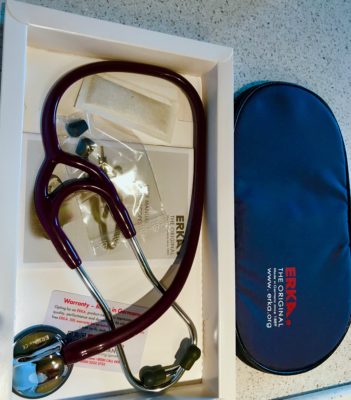Google unveils plans for online personal health
October 17, 2007 (Computerworld) — Less than two weeks after Microsoft Corp. announced plans to support online personal health information records, Google unveiled plans to follow suit.
Marissa Mayer, Google’s vice president of search products and user experience, said Wednesday here at the Web 2.0 Summit that Google plans to support the “storage and movement” of people’s health records.
Although she provided only scant details on the effort, she noted that Google became interested in the personal health record market as it watched Hurricane Katrina take aim at the Gulf Coast and all the paper-based records stored in various medical offices and hospitals in the region.
“In that moment it was too late for us to mobilize,” Mayer said. “It doesn’t make sense to generate this volume of information on paper. It should be something that is digital. People should have control over their own records.”
Wow, Google does vaporware? This is a lame attempt, and invoking Katrina a) is a cheap rhetorical gambit and b) points out that even if it were true they’ve had over 2 years to come up with their answer, and it’s not even at a Beta stage?
Weak response from Google. Embarrassing, really.



It seems you have something against Google.
My guess is that Microsoft’s announcement was a preemptive one based on their knowledge that Google was working on this — it’s really just an extension of what they’ve been doing. For MS, it’s new territory.
I also don’t see any issue with the Katrina comment other than name-dropping. It’s safe to talk about Katrina, it’s in the past. What no one wants to talk about or suggest solutions for is the mess that southern Louisiana is still in.
I have nothing against Google; I use many of their desktop (free, very nice) products on a MS Windows machine, and also use them on my Mac. Pointing out that they’ve been caught flat-footed and spun out a lame ‘oh, we’re doing that, too’ isn’t proof of anti-Google bias.
Google has a history of running out ahead of MS, and not making a big deal about things they’re doing until they’ve done them. That’s why this seems so out of place.
I don’t think they have been caught flat-footed. The whole concept has a long way to go before it will be accepted. It doesn’t matter that MS might have something working right now. About all that’s going on right now is the media frenzy of the latest chapter of MS vs. Google:Software Titans. MS “wins” here, Google “wins” there — who gives a _______?
HeathVault and Google Heath are looking for your personal health records.
Google now has the largest data mine of information about their users and Microsoft has done plenty of gathering too. Do we want to give them more? Studies show that individuals do not want their personal medical records to be held electronically by their government, employer, insurance company, pharmacies or drug companies for obvious reasons. The preferred method of storing individual’s critical and non-critical health information is with a company that is ONLY in this business of online medical records. Plus people need to know that they are in control of this information. More and more people trust the Internet but they need to know who is guarding the hen house.
With more than 200 vendors of PHR in the world today and also with the entry of big corporations into the world of PHR,there is not much of difference about the way in which the records are created and stored among all these vendors.
Moreover,there is a immediate need to educate consumers about using PHR tool,prior to releasing new versions into the market.Not many people are even aware of the term PHR,let alone using them.
Google is walking in right direction by taking baby steps before releasing its PHR version.Microsoft version of PHR is just a collection of vendors selling PHR with nothing new to offer.